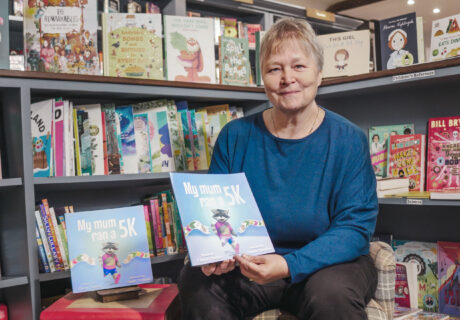Coffee is a daily ritual for millions, with 2 billion cups of coffee drunk per day globally, but approximately only 7% of coffee consumed in the UK is bought on Fairtrade terms (USDA, 2023). Today, on International Coffee Day, the Fairtrade Foundation is inviting coffee lovers to be part of the change by choosing a Fairtrade cup of coffee to enjoy.
Fairtrade’s Be the Change campaign highlights the urgent need for fair prices for farmers, as the lives of those behind our favourite beverage are often filled with uncertainty. From unfair terms of trade to fluctuating prices to the impacts of climate change, growing coffee beans is being made increasingly difficult, and few farmers earn a living from coffee production. Rural communities already lacking basic services like healthcare, education and infrastructure are hit the hardest.
The Fairtrade Foundation is tackling these challenges head-on by working with companies to enable coffee farmers to achieve higher prices. This pricing model, which includes the Fairtrade Premium (an additional sum of money which goes into a communal fund for workers and farmers to use) means farmers have a more equitable share of the profits, allowing them to invest in sustainable farming practices, improve living conditions, provide for their families, and give their children access to greater education opportunities.
This International Coffee Day, Fairtrade have also published a new study, Understanding the Climate and Environmental Impacts of Smallholder Coffee Farming, has revealed that smallholder coffee farming practices are more climate friendly than large scale plantations.
Smallholder farmers like those included in this study produce 60% of the world’s coffee, and Fairtrade enables consumers to support these farmers, meaning they receive fairer prices and can continue farming sustainably, while improving their quality of life and supporting their families.
Dr. CJ Stanton, Senior MEL Manager at the Fairtrade Foundation said: “This desk-based study finds that small-scale coffee farmer in Latin and Central America generally use more environmentally sustainable practices than large-scale production, especially when integrated with agroforestry systems, agroecological principles, and certifications like organic and Fairtrade.
“The results are very significant because despite being a lucrative global industry with a retail value of over $100 billion, 125 million people depend on coffee for their livelihoods. The sector is increasingly facing significant challenges such a market price volatility and escalating climate crisis which is affecting farmers’ ability to grow coffee.”
The study suggests that Fairtrade can play a major role in addressing the climate crisis and environmental sustainability of coffee production, as their standards include criteria to protect forests, prevent deforestation and prepare environmental risk assessments that identify issues that may affect the climate resilience of producers.





